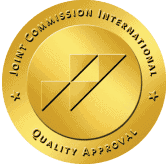You wake up each morning wondering which version of your loved one you’ll encounter today – the charming person you fell in love with or the unpredictable stranger alcohol has created. Living with an alcoholic transforms your home into an emotional battlefield where you’re constantly walking on eggshells, managing crises, and losing pieces of yourself in the process.
The statistics paint a sobering picture: alcoholism doesn’t just affect the person drinking – it impacts everyone in the household, increasing risks of physical and emotional violence while often triggering substance abuse in other family members. You’re not alone in feeling overwhelmed, anxious, or trapped in cycles of hope and disappointment.
Your feelings are valid, and your voice matters. While you can’t fix your partner’s addiction, you can reclaim your right to peace, clarity, and stability. Understanding when professional intervention becomes necessary – and how to protect your mental health – isn’t selfish; it’s essential for survival.
Understanding the Reality of Living with an Alcoholic
Living with an alcoholic spouse creates a complex web of emotional and practical challenges that extend far beyond the drinking itself. You’re dealing with unpredictable behaviors, broken promises, and the constant stress of never knowing what each day brings.
Recognizing the Signs of Alcohol Dependency
Identifying alcohol dependency in your spouse becomes crucial for understanding the full scope of what you’re facing. You might notice your spouse drinks in secret or at inappropriate times, like early morning or during work hours. Regular excessive drinking patterns emerge where they consume multiple drinks daily or binge drink several times per week.
Mood swings and irritability become common occurrences, especially when alcohol isn’t available. Your spouse may display dramatic personality changes after drinking, transforming from loving to aggressive or withdrawn to overly emotional. They begin neglecting responsibilities at work, missing deadlines, or calling in sick frequently. At home, household duties like paying bills, caring for children, or maintaining the property get ignored.
Deceptive behaviors around alcohol consumption intensify. You find hidden bottles in unusual places like cars, garages, or behind books. Your spouse makes excuses for their drinking, claiming stress, work pressure, or special occasions justify their consumption. When confronted about their drinking habits, they become defensive, angry, or dismissive, often turning the blame back onto you or external circumstances.
Physical signs manifest through bloodshot eyes, trembling hands, frequent hangovers, and deteriorating personal hygiene. Social isolation increases as they avoid family gatherings, work events, or activities where their drinking might be scrutinized.
The Difference Between High-Functioning and Non-Functioning Alcoholics
Understanding whether you’re living with a functional alcoholic or a non-functioning alcoholic affects how you approach the situation and what support you need. High-functioning alcoholics maintain their professional responsibilities successfully, holding jobs, paying bills, and appearing stable to outsiders. Nearly 20% of alcoholics fall into this category, with many being well-educated and earning good incomes.
Your high-functioning alcoholic spouse excels at compartmentalizing their drinking from their daily obligations. They attend work meetings, complete projects, and maintain social relationships while hiding their alcohol dependency. This creates unique challenges for spouses of alcoholics because the problem remains invisible to others, making you feel isolated in your concerns.
Non-functioning alcoholics display more obvious signs of impairment. They experience repeated work problems like tardiness, missed deadlines, or job loss. Legal issues such as DUI arrests or public intoxication charges occur frequently. Financial hardship results from the inability to maintain steady employment or poor decision-making while intoxicated.
The visibility difference affects how others perceive your situation. When married to an alcoholic who functions well professionally, friends and family may dismiss your concerns or suggest you’re overreacting. High-functioning alcoholics often use their success as evidence that they don’t have a drinking problem, making intervention more challenging.
Both types experience identical health consequences, including liver damage, cardiovascular problems, and mental health issues. The effects of living with an alcoholic spouse remain equally devastating regardless of their functioning level. Your emotional well-being suffers whether your spouse drinks openly or secretly maintains their addiction.
Dealing with an alcoholic spouse requires recognizing that the functioning level doesn’t indicate the severity of addiction. High-functioning alcoholics may be more resistant to treatment because their success seems to contradict the need for help. How to live with an alcoholic depends less on their functioning level and more on establishing boundaries, protecting your mental health, and encouraging professional treatment when they’re ready to accept help.
The Impact on Family Members and Relationships

Living with an alcoholic creates ripple effects that extend far beyond the individual struggling with addiction. The destructive patterns of alcohol dependency fundamentally alter family dynamics and strain every relationship within the household.
Effects on Spouses and Partners
Spouses of alcoholics face profound psychological and emotional challenges that often escalate over time. You’re likely experiencing chronic stress, anxiety, and depression as you navigate the unpredictable behavior patterns of your alcoholic partner. Research shows that partners frequently develop their own unhealthy coping mechanisms, struggle to maintain work responsibilities, and experience difficulty sleeping or prioritizing self-care.
The emotional toll manifests in multiple ways when you’re married to an alcoholic. You might find yourself constantly monitoring your spouse’s behavior, making excuses for their actions, or covering up the extent of their drinking problem. This hypervigilance creates a state of chronic stress that affects your physical health, leading to psychosomatic complaints and compromised immune function.
Dealing with an alcoholic spouse often results in social isolation as you withdraw from friends and family to hide the reality of your situation. The unpredictability of your partner’s behavior makes it difficult to maintain normal social relationships or engage in activities you once enjoyed. Nearly 60% of violent incidents against domestic partners occur under the influence of alcohol, according to the US Bureau of Justice Statistics, highlighting the serious safety risks you may face.
How Children Are Affected
Children living in households with alcoholic parents experience significantly higher rates of emotional and behavioral problems compared to their peers. Your children are four times more likely to develop alcohol use disorder themselves, creating a generational cycle of addiction that can persist for decades.
The immediate effects on children include emotional insecurity, developmental disruptions, and academic challenges. Young children struggle with attachment and trust issues, while teenagers often rebel, isolate themselves, or act out in destructive ways. These children frequently experience neglect as the alcoholic parent becomes unable to meet basic care needs, resulting in missed meals, inadequate supervision, and exposure to dangerous situations.
Children of alcoholics commonly develop psychological symptoms, including anxiety, depression, and low self-esteem. They often blame themselves for their parents’ drinking, leading to guilt and emotional distress that carries into adulthood. The chaotic home environment prevents them from receiving adequate attention and emotional support, resulting in behavioral issues, stress-related disorders, and difficulty forming healthy relationships later in life.
Emotional and Mental Health Consequences
The effects of living with an alcoholic spouse create lasting mental health challenges that require professional intervention. You’re at increased risk of developing trauma-related disorders, including post-traumatic stress disorder (PTSD), due to the chronic exposure to unpredictable and often dangerous situations.
Family members commonly experience a range of emotional symptoms, including persistent anxiety, depression, guilt, and feelings of abandonment. These psychological burdens contribute to long-term mental health issues that affect your ability to form healthy relationships, maintain self-esteem, and manage daily responsibilities effectively.
The chronic stress of living with an alcoholic often leads to physical health problems, including cardiovascular issues, compromised immune function, and sleep disorders. Many family members develop their own addictive behaviors as coping mechanisms, including substance abuse, overeating, or compulsive behaviors. The financial strain caused by the alcoholic’s behavior adds another layer of stress, potentially leading to job loss, bankruptcy, or housing instability.
Breaking free from these destructive patterns requires comprehensive support that addresses both the immediate safety concerns and the long-term emotional healing process for all family members affected by the addiction.
Coping Strategies for Daily Life

Living with an alcoholic spouse requires practical strategies that protect your emotional stability while maintaining structure in your home. These evidence-based approaches help you navigate daily challenges without sacrificing your own well-being.
Setting Healthy Boundaries
Clear boundaries create a protective framework that defines acceptable behavior in your shared space while preventing you from becoming overwhelmed by your spouse’s drinking patterns. You establish these limits to protect yourself and any children in the home rather than to control your alcoholic partner’s behavior.
Define specific behavioral limits in your household. Prohibit alcohol in shared living spaces such as the kitchen or living room where family activities occur. Refuse to make excuses for missed work obligations or family events caused by drinking episodes. Remove yourself from situations involving verbal abuse or aggressive behavior immediately.
Communicate your boundaries clearly using direct statements rather than suggestions. State “I won’t tolerate yelling or name-calling” instead of “Please don’t raise your voice.” Express these limits during calm moments when your spouse isn’t intoxicated to ensure better comprehension.
Enforce consequences consistently when boundaries are crossed. Sleep in a separate room following episodes of intoxicated behavior. Leave the house temporarily when verbal abuse occurs. Maintain these responses every time violations happen to establish predictable outcomes for inappropriate behavior.
Avoiding Codependency
Codependency develops when you sacrifice your own needs to manage your alcoholic spouse’s drinking consequences. This pattern occurs in approximately 40% of relationships where one partner struggles with alcohol use disorder.
Recognize enabling behaviors that perpetuate your spouse’s drinking patterns. Stop covering missed work days with false illness reports. Avoid cleaning up alcohol-related messes or hiding evidence of drinking from family members. Refuse to purchase alcohol or provide money that might be used for drinking.
Prioritize your own emotional needs by scheduling activities that satisfy you, independent of your spouse’s behavior. Maintain friendships outside your marriage through regular social contact. Pursue hobbies or interests that existed before your spouse’s drinking became problematic.
Seek professional support through individual therapy or codependency support groups. Al-Anon meetings provide peer support from others experiencing similar challenges in their relationships. These groups report 70% of participants experience reduced stress levels within six months of regular attendance.
Protecting Your Well-Being
Your mental and physical health requires active protection when dealing with an alcoholic spouse’s unpredictable behavior and emotional demands.
Maintain consistent self-care practices that reduce stress accumulation from daily relationship challenges. Exercise for 30 minutes daily to release tension and improve mood stability. Practice meditation or deep breathing techniques during particularly stressful interactions. Ensure adequate sleep by maintaining regular bedtime routines regardless of your spouse’s drinking schedule.
Build a support network outside your marriage. Connect with trusted family members who understand your situation without judgment. Join support groups specifically designed for spouses of alcoholics where you can share experiences safely. Consider individual counseling to process complex emotions and develop additional coping strategies.
Develop safety plans for situations involving intoxicated behavior or potential violence. Keep important documents like identification and financial records in an accessible location. Maintain emergency contact numbers for trusted friends or family members. Identify safe spaces where you can retreat during volatile situations.
Monitor your mental health for signs of depression or anxiety that commonly affect partners of alcoholics. Chronic stress from living with an alcoholic increases depression risk by 60% compared to the general population. Seek professional mental health treatment if you experience persistent sadness, sleep disturbances, or loss of interest in previously enjoyable activities.
Communication and Support Approaches

Effective communication strategies create the foundation for addressing alcohol addiction within your relationship. Building these approaches requires patience and understanding while maintaining clear boundaries that protect your emotional well-being.
How to Talk About the Drinking Problem
Choose a calm moment when your spouse is sober to discuss your concerns about their drinking patterns. Use “I” statements to express your feelings without creating defensiveness, such as “I feel worried when you drink excessively” rather than accusatory language that triggers confrontation.
Listen actively to their responses and show empathy while avoiding judgment or blame. Express specific observations about behaviors that concern you, providing concrete examples like missed family events or changes in mood after drinking episodes.
Offer information about alcohol addiction’s health effects and express your willingness to support their recovery journey. This support might include accompanying them to medical appointments or researching treatment options together.
Avoid making demands or ultimatums during these conversations. Instead, present options and allow them to make decisions about seeking help on their own terms. This approach respects their autonomy while maintaining your supportive role.
Research addiction treatment options in your area before having this conversation. Having concrete information about available resources demonstrates your commitment to finding solutions and provides immediate next steps if they express interest in getting help.
When and How to Stage an Intervention
Stage an intervention when conversations haven’t produced positive changes and the addiction continues affecting your family’s well-being. Focus the intervention on encouraging your spouse to seek professional help rather than listing ways their drinking has hurt others.
Use motivational interviewing techniques by discussing both pros and cons of drinking to help them recognize their own reasons for change. This method proves more effective than confrontational approaches that often trigger defensive responses.
Plan the intervention carefully with trusted family members and friends who can participate constructively. Consider involving a professional interventionist or addiction counselor to guide the conversation and provide expert insights about treatment options.
Keep the intervention calm and focused on their well-being rather than past grievances. Present a clear treatment plan with specific next steps, including immediate enrollment in detox programs or outpatient therapy options.
Prepare for various responses, including denial, anger, or immediate acceptance. Have resources ready, such as contact information for treatment centers and transportation arrangements to facilities if they agree to seek help.
Building a Support Network
Create a robust support system that includes mental health professionals specializing in addiction, support groups for families of alcoholics, and trusted friends who understand your situation. Living with an alcoholic spouse often leads to anxiety, depression, and chronic stress that requires professional attention.
Join Al-Anon or similar support groups designed specifically for spouses of alcoholics. These groups provide emotional support and practical guidance from others who understand the unique challenges you face while living with an alcoholic husband or wife.
Connect with therapists who specialize in codependency and addiction-related family issues. Professional counseling helps you develop healthy coping strategies and maintain emotional stability during your spouse’s recovery process or continued addiction.
Build relationships with trusted friends and family members who can provide emotional support during difficult periods. Having people you can call during crises creates a safety net that protects your mental health.
Consider joining online communities and forums where spouses of alcoholics share experiences and coping strategies. These digital support networks offer 24/7 access to understanding individuals who face similar challenges in their marriages.
Establish connections with domestic violence resources if your spouse becomes aggressive when drinking. Having safety planning resources readily available protects you and other family members during volatile situations that can escalate quickly.
Avoiding Enabling Behaviors
Understanding what actions worsen the situation becomes crucial when living with an alcoholic spouse. Nearly 60% of violent incidents against domestic partners occur under the influence of alcohol, making awareness of enabling patterns essential for your safety and their recovery.
What Not to Do When Living with an Alcoholic
Certain behaviors might feel supportive, but perpetuate the addiction cycle. Avoid giving money that could purchase alcohol, as this directly funds their dependency. Don’t drink around your alcoholic spouse, as this normalizes alcohol consumption and removes accountability.
Lying to employers, family members, or friends to cover up their behavior prevents natural consequences from occurring. Making excuses for missed work or family events due to drinking removes the motivation for change. Bailing them out of legal trouble eliminates accountability for their actions.
Helping with hangover-related issues, like calling in sick for them or providing care during withdrawal,l enables the cycle to continue. Allowing alcohol or drinking companions in your home creates an environment that supports their addiction.
Engaging with your spouse when they’re intoxicated often leads to unproductive conversations and reinforces negative patterns. Wait for sober moments to address important matters or express concerns about their drinking.
Ignoring the situation or pretending alcoholism isn’t happening delays necessary interventions and support-seeking. Accepting abusive behavior of any kind—whether verbal, emotional, physical, or financial—puts your safety at risk and normalizes unacceptable conduct.
Recognizing When You’re Making Things Worse
Taking responsibility for your spouse’s addiction creates unhealthy guilt patterns that hinder recovery. When you blame yourself for their drinking or feel responsible for controlling their alcohol consumption, you’re removing accountability from the person who needs it most.
Sharing guilt through enabling behaviors like paying their alcohol-related debts, covering missed responsibilities, or maintaining a facade of normalcy prevents them from experiencing consequences. These actions might temporarily reduce conflict, but eventually support continued drinking.
Sacrificing your own mental and physical health deteriorates the household environment for everyone. Neglecting self-care, avoiding social connections, and compromising your well-being creates additional stress that can worsen family dynamics.
Codependent behaviors, where you sacrifice your needs to maintain normalcy, often unconsciously help your alcoholic spouse continue drinking. Studies show that spouses of alcoholics commonly use emotion-focused coping, problem-focused coping, and avoidance coping strategies, but without proper boundaries, these can become enabling mechanisms.
Living with an alcoholic spouse can cause anxiety, depression, sleep disturbances, and psychosomatic symptoms in family members. Recognizing when your coping strategies have become counterproductive helps you redirect energy toward healthier approaches that support both your well-being and potential recovery.
Seeking Professional Help and Treatment Options
Professional treatment provides the most effective path forward when living with an alcoholic spouse. Medical professionals and addiction specialists can assess your loved one’s specific situation and recommend appropriate interventions based on severity and health factors.
Getting Support for Yourself
Taking care of your emotional and physical health becomes critical when dealing with an alcoholic spouse. Support groups like Al-Anon offer mutual-help specifically designed for spouses of alcoholics, providing community understanding and practical tools for setting healthy boundaries. Research shows that family members often use three primary coping strategies: emotion-focused coping (managing emotional responses), problem-focused coping (addressing challenges directly), and avoidance coping (creating emotional distance).
Individual therapy helps you process the stress and trauma of living with a functional alcoholic. Family therapy sessions allow you to work through complex emotions while developing communication strategies that protect your well-being. These professional services complement peer support groups by providing personalized guidance for your specific situation.
Building a robust support network outside your marriage protects you from isolation. Connect with friends, family members, and other spouses of alcoholics who understand your experience. Social support and education enhance your adaptive coping strategies and reduce the psychological burden of living with an alcoholic husband.
Encouraging Treatment for Your Loved One
You cannot force recovery, but you can support your spouse’s journey toward sobriety through strategic approaches. Primary care doctors can assess drinking patterns and recommend treatment options, including medication when appropriate. Discuss your concerns calmly when your loved one is sober, using specific examples of how their drinking affects you and the family.
Professional treatment ranges from outpatient therapy and support groups to medically supervised detox and inpatient rehabilitation. A thorough evaluation by an addiction specialist determines the best course of action for your spouse’s specific needs. High-functioning alcoholics often prefer less disruptive treatment options like outpatient programs initially, provided these are clinically appropriate.
Offer information about treatment resources and gently encourage seeking professional help. Drive them to medical appointments or therapy sessions when they’re ready to take these steps. In some cases, carefully planned interventions guided by professionals may become necessary to break through denial and resistance.
Support Groups and Resources
Support groups provide essential peer connection and encouragement for both alcoholics and their families. Alcoholics Anonymous (AA) and SMART Recovery offer structure, accountability, and community for individuals struggling with alcohol use disorder. These programs work regardless of how successful someone appears professionally, addressing the core addiction issues that affect marriages.
Al-Anon specifically serves family members and friends of alcoholics, offering emotional support and coping strategies tailored to your unique challenges. Al-Anon meetings help you understand that you’re not alone in dealing with an alcoholic spouse. These groups teach practical boundary-setting techniques and provide ongoing encouragement throughout your journey.
Professional counseling and therapy services complement support groups by addressing individual family dynamics. Behavioral therapies, including individual, group, and family counseling, help address the underlying causes of addiction while developing healthy coping skills. Participation in 12-step programs provides peer support and proven strategies for maintaining sobriety and family stability.
Treatment resources include 24-hour hotlines, detox centers, and rehabilitation facilities throughout the country. SAMHSA’s National Helpline provides free, confidential support connecting families with treatment and counseling services. These resources help you navigate the complex process of encouraging treatment while protecting your own mental health when married to an alcoholic.
Common Questions
Living with an alcoholic spouse raises complex questions about relationships, mental health, and recovery. These frequently asked questions address the most pressing concerns faced by partners and family members.
What are the effects of living with an alcoholic person?
Emotional distress dominates the experience of living with an alcoholic spouse. You face severe anxiety, depression, frustration, fear, guilt, and anger due to unpredictable behavior and broken trust. This emotional turmoil leads to chronic stress, low self-esteem, and even PTSD, particularly affecting partners and children who witness the daily chaos of addiction.
Physical health challenges emerge from the constant stress of caregiving and maintaining stability in an unstable environment. You experience headaches, sleep disturbances, and exhaustion that further impact your overall health. The chronic stress takes a measurable toll on your immune system and cardiovascular health.
Financial problems strain household resources as alcoholism drains family finances through spending on alcohol and related debts. This creates economic instability that affects your ability to plan for the future and meet basic needs.
Relationship and social issues deteriorate as mistrust, lies, and emotional distance replace intimacy and connection. You withdraw socially and neglect your personal health while focusing entirely on managing your spouse’s addiction.
How to deal with an alcoholic partner?
Seek professional support from wellness centers or rehabilitation programs for both you and your alcoholic spouse. Professional intervention provides structured approaches to addiction treatment and family recovery.
Set clear boundaries to protect your personal well-being by establishing specific limits on behaviors you’ll tolerate. Document these boundaries and communicate consequences consistently to maintain your emotional stability.
Encourage treatment by supporting your alcoholic spouse in seeking professional help for addiction without enabling their destructive behaviors. Present treatment options during sober moments when they’re most receptive to guidance.
Practice self-care by prioritizing your emotional and physical health through therapy, support groups, exercise, and maintaining relationships outside your marriage. Your recovery matters as much as your spouse’s treatment.
Prioritize safety first if domestic violence occurs by seeking immediate help from hotlines and authorities. Develop a safety plan that includes emergency contacts and exit strategies for dangerous situations.
Is living with an alcoholic traumatic?
Yes, living with an alcoholic creates traumatic experiences that cause lasting psychological damage. The ongoing emotional distress, unpredictability, and potential for abuse often result in trauma-related disorders such as PTSD, anxiety disorders, and depression for both partners and children.
Chronic exposure to alcoholic behaviors creates a constant state of hypervigilance where you’re always anticipating the next crisis or outburst. This sustained stress response alters your brain chemistry and creates long-term mental health challenges.
Childhood trauma affects children of alcoholics particularly severely, as they develop in an environment of chaos and instability. These children show higher rates of depression, low self-esteem, and maladaptive behaviors that persist into adulthood.
Recovery from trauma requires professional intervention, strong support systems, and comprehensive safety measures. The effects of living with an alcoholic spouse extend far beyond the active addiction period and require specialized treatment to address the psychological wounds created by prolonged exposure to addiction.


